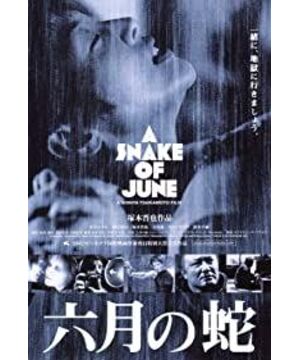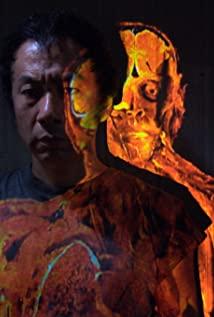I can't understand Japanese, so I only try to guess the plot through the images and the expressions of the characters. But the characters and the plot are foils, and the real protagonist, as many have said, is desire. The enchanting rain and silently growing plants and desires are the ultimate expression of the heroine's dance in the rain. The front is just building the stage, and after the dance, it's the question of how to call the curtain.
How pale is the freedom of modern women, especially for Chinese women who are stuck between modernity and tradition. They speak different languages, but they can feel that the other party is under the same restraint and urging. It is a very wonderful feeling. Protection and restriction are almost synonymous. For women, home is the snail's shell, and carrying forward is a helpless choice.
There is almost no truly free individual. What we have is only the self that has been distorted by various lenses - human eyes, social standards, self-expectations, etc. The effects of the photographer's lens in the film are more or less offset. A little twisted, but those with free-zoom cameras are the mainstream of society.
What can we do? Only struggling not to be submerged, if unfortunately fall into the rain in June, we can only wish each other good luck.
Some people say that only the body itself belongs to us. Then, in the body, the heroine just touches the line, but does not make it out. This is the reason why this film is still allowed to be enjoyed in China today.
Did the women win? She had not declared war on anyone, her only opponent was herself. Didn't the person who helped her break the chains want to possess her completely? Can the mind and body really be completely separated? In fact, what woman does not long for the union of mind, heart and body? The realization may be almost 0. Wasn't the director (the cameraman projected in the film) trying to win back the hearts of women who had gradually lost their worship of male power and rediscovered themselves? This is the anxiety of Japanese men, and wherever there is pressure to survive, this anxiety of possessors and dominators is common.
The repressed flower of life cannot bloom for a long time. After a moment of splendor, it returns to silence. Those with a rancid smell also had youth, hesitation and struggle. Nora has experienced long-term spiritual torture and secular persecution. , will still return home. This is the answer to modern China.
What we need to reflect on is not only the harm of Confucianism to human nature, but we must know that neither Anna nor Nora grew up under the influence of Confucianism. Rather, in most civilizations, there is a slow and hidden corrosive agent that causes the suffering of those whose vitality and imagination are active while ensuring the stability of the progress of the civilization.
The same water, dripping in different places, is different. When the same lust arises between different objects, there is a tangle of right and wrong. Maybe I will like black and white image creation because of this film.
View more about A Snake of June reviews








